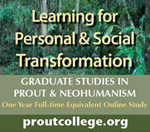Bad breath is the least of the problems caused by eating garlic, writes Ravi Logan who looks at evidence that garlic impairs mental functions and clouds spiritual clarity.
For Zen monks, it is one of five prohibited items. Yogis strictly avoid it. Many Chinese Taoists won’t cook with it. Brahma Kumariis and Hari Krishnas don’t eat it. Young children generally have an aversion to it. Animals won't touch it. Yet, for most people who eat a whole foods diet, garlic has become virtually a staple food.
Dr. Robert Beck, in a lecture at the 1996 Whole Life Expo, explained why people who are concerned about the quality brain functioning should avoid eating garlic: ‘Garlic kills tens of thousands of brain cells and desynchronizes the left and right brains waves. The reason garlic is so toxic is that the sulphone hydroxyl ion penetrates the blood-brain barrier and is a specific poison for brain cells. We discovered this when I was the world's largest manufacturer of EEG feedback equipment. We'd have people come back from lunch that looked clinically dead on an encephlograph, which we used to calibrate their progress. "What happened?" we’d ask. "Well, I went to an Italian restaurant and there was some garlic in my salad dressing." So we had them sign an agreement that they wouldn't touch garlic before classes or we would be wasting their time and their money.’
Dr. Beck also recounted, ‘I was in flight test engineering in the 1950's. The flight surgeon would come around every month and remind all of us: "Don't you dare touch any garlic 72 hours before you fly one of our airplanes, because it'll affect your reaction time. You're three times slower than you would be if you'd not had the garlic."’
After observing the disruptive effects of garlic during biofeedback therapy, Dr. Beck funded a study on garlic that was done at Stanford University. Talking about the findings, he said: ‘They found that it's a poison. You can rub a clove of garlic on your foot and you can smell it shortly later on your wrists. So it penetrates the body. The sulphone hydroxyl ion penetrates all the barriers including the corpus callosum in the brain.’
As a demonstration of garlic’s effects on the brain, Beck suggested the following: ‘If you know anyone who has low-grade headaches, or attention deficit disorder, or they can't quite focus on the computer in the afternoon, just do an experiment. Take these people off garlic and see how much better they get very shortly. And then let them eat a little garlic after about three weeks. They'll say, "My God, I had no idea that this was the cause of my problems."’
Garlic, of course, has a wide range of medicinal benefits, including a capacity to boost the immune system. It deserves appreciation for its healing properties. But does this justify making it a staple in one’s diet?
Paul Pitchford, in his book Healing with Whole Foods (the most authoritative text on the subject of food as medicine), gives this perspective: ‘Garlic has been promoted as a near cure-all for an extensive list of ailments. But it is helpful to remember that powerful and strongly medicinal foods ought to be used cautiously in the normal diet.’ Pitchard goes on to warn that, ‘Garlic disperses mental concentration. . . . [It] brings excessive desires and mental dullness to the person, making mental/spiritual equilibrium difficult.’
For those interested in vitality and clarity of the mind, and for those seeking spiritual receptivity, the ancient teaching on garlic remains: Better to avoid it.
Dr. Andrew Nicholson, a nutrition expert and advocate for change in school lunch programs, points out that there is also a sound physiological reason to avoid garlic. One of garlic’s recognized medical benefits is its potent antibacterial activity. ‘However,’ says Nicholson, ‘there are many bacteria in the human digestive tract which are essential to its normal function. Killing these bacteria may not be beneficial.’ When sick, eating garlic (or taking antibiotics) may be necessary. ‘But this not the case for otherwise healthy people.’
Dr. Nicholson also claims that garlic’s toxic effects are not limited to micro-organisms. Research studies that he cites link garlic consumption to asthma, conjunctivitis, contact dermatitis, and the skin disease, pemphigus.
Joshua Smith, in an article on the uses of garlic printed in the Spring 2006 Permaculture News, notes that garlic is an exceptionally effective insecticide. As such, it's the only insecticide that people eat as a staple. While considered non-toxic to animals, it is worth noting that garlic plants never gets browsed on by slugs, snails, birds, or herbivore mammals. Is it not strange that while other animals avoid garlic, humans should choose to eat it as a staple?
Finally, consider the opinionated voice of a cook on using garlic so pervasively. Annabel Perkins was lead chef at Food For All, one of the first whole foods restaurants in England, and author of the cookbook, Vegetarian Food For All. In the introduction to her book, Perkins urges people cooking with whole foods to ‘experiment liberally with a wide variety of herbs and spices and gain the confidence to move away from the inevitable garlic that swamps every subtle flavor in Western vegetarian food.’
This advice speaks to the sensibilities of many who eat a natural foods diet and who are known for venturing beyond commonplace foods and filling their gardens and dinner tables with exotic varieties of fruits and vegetables. To so consistently overwhelm the subtle tastes of heirloom cultivars, wildcrafted edibles, and new hybrids with garlic seems a culinary loss that could easily be avoided.




